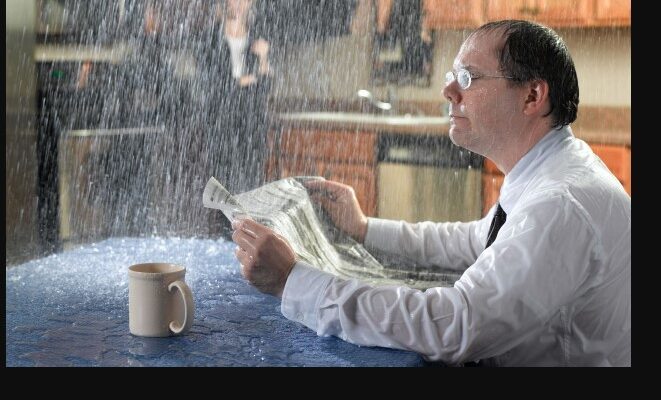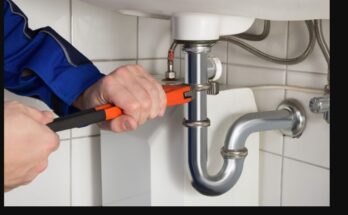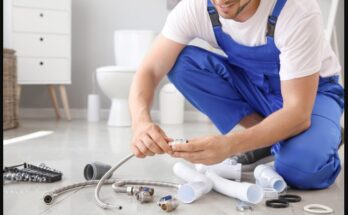Rain is a natural part of our environment, essential for life, but often overlooked in its potential to impact our homes, particularly our plumbing systems.
But can rain affect plumbing?
The answer is a resounding yes. Heavy rains can lead to various plumbing issues, from minor annoyances to significant damages.
Let’s explore how rain affects plumbing and what you can do to protect your home.
Contents
- 1 Introduction
- 2 How Rain Affects Plumbing
- 3 Common Plumbing Issues Caused by Rain
- 4 Preventative Measures to Protect Plumbing
- 5 Regular Maintenance and Inspection
- 6 Installing Proper Drainage Systems
- 7 Using Rain Barrels and Diverters
- 8 Waterproofing Your Home
- 9 FAQs
- 9.1 1. Can heavy rain cause plumbing issues?
- 9.2 2. How can I prevent my basement from flooding during heavy rains?
- 9.3 3. What should I do if my sewer backs up during a storm?
- 9.4 4. How often should I inspect my plumbing system for potential issues?
- 9.5 5. Are rain barrels effective in managing excess rainwater?
- 10 Conclusion
Introduction
When we think of rain, we often picture lush gardens, replenished water supplies, and a cooling effect on hot days.
However, heavy rainfall can also pose significant risks to our homes’ plumbing systems.
Understanding and mitigating these risks is crucial to maintaining a healthy and functional plumbing system. In this article, we’ll discuss how rain can affect your plumbing and offer practical solutions to protect your home.
How Rain Affects Plumbing
1. Soil Saturation and Shifting
Heavy rains saturate the soil around your home, leading to soil shifting and settling. This movement can pressure underground pipes, causing them to crack or break.
2. Increased Water Volume
Rainwater can significantly increase the volume of water your plumbing system has to handle. This can overwhelm your drainage system, leading to backups and overflows.
3. Water Contamination
Rain can carry contaminants from the surface into your plumbing system, mainly if there are leaks or breaks in your pipes. This can lead to water quality issues in your home.
Common Plumbing Issues Caused by Rain
1. Foundation and Basement Flooding
Heavy rain can cause water to seep into your basement or foundation, leading to flooding. This is particularly problematic if your home lacks proper waterproofing or drainage systems.
2. Clogged Drains and Gutters
Rainwater can wash debris like leaves, dirt, and other particles into your gutters and drains, leading to clogs. These clogs can cause water to back up, overflowing and potentially damaging water.
3. Sewer Backups
Increased rainfall can overwhelm municipal sewer systems, causing sewer backups. When this happens, wastewater can backflow into your home through toilets, sinks, and floor drains, creating a hazardous situation.
4. Water Pressure Changes
Heavy rain can cause fluctuations in water pressure. Low water pressure can be inconvenient, while high water pressure can strain your pipes and fixtures, leading to leaks and bursts.
5. Corrosion and Pipe Damage
Rainwater, significantly acidic or containing pollutants, can accelerate the corrosion of metal pipes. Over time, this corrosion can weaken pipes, leading to leaks and breaks.
Preventative Measures to Protect Plumbing
1. Regular Maintenance and Inspection
Routine maintenance and inspection of your plumbing system are crucial. Regularly check for leaks, cracks, and signs of wear and tear. Please address any issues promptly to prevent them from worsening during heavy rains.
2. Installing Proper Drainage Systems
Ensure your home has an effective drainage system to direct rainwater away from your foundation. This includes gutters, downspouts, and proper grading around your home.
3. Using Rain Barrels and Diverters
Rain barrels and diverters can help manage excess rainwater. Collecting rainwater in barrels reduces the water entering your drainage system, helping to prevent overflows and backups.
4. Waterproofing Your Home
Waterproofing your basement and foundation can prevent water from seeping into your home during heavy rains. This can include applying sealant to walls and floors and installing sump pumps to remove excess water.
Regular Maintenance and Inspection
1. Inspecting Pipes and Fixtures
Regularly inspect your pipes and fixtures for signs of leaks or corrosion. Early detection and repair can prevent more severe damage during heavy rains.
2. Cleaning Gutters and Downspouts
Keep your gutters and downspouts clear of debris. Regular cleaning prevents clogs and ensures rainwater can flow freely away from your home.
3. Checking for Soil Erosion
Inspect the soil around your home for signs of erosion or shifting. Addressing these issues can help prevent damage to underground pipes.
Installing Proper Drainage Systems
1. Effective Grading
Ensure that the ground around your home slopes away from the foundation. This prevents water from pooling near your home and reduces the risk of foundation and basement flooding.
2. French Drains
Consider installing French drains to manage excess rainwater. These drains direct water away from your home, reducing the risk of water damage.
3. Sump Pumps
Install sump pumps in your basement to remove excess water. Sump pumps are handy in areas prone to heavy rainfall and flooding.
Using Rain Barrels and Diverters
1. Rain Barrels
Install rain barrels to collect and store rainwater from your gutters. This reduces the volume of water entering your drainage system and provides a free water source for your garden.
2. Diverters
Use diverters to direct excess rainwater away from your home. Diverters can be installed on downspouts to channel water into rain barrels or away from your foundation.
Waterproofing Your Home
1. Sealing Cracks and Holes
Seal any cracks or holes in your foundation and walls to prevent water from seeping into your home. Use waterproof sealant for best results.
2. Installing Vapor Barriers
Install vapour barriers in your basement to prevent moisture from entering. Vapour barriers can be applied to walls and floors to dry your basement.
3. Sump Pump Maintenance
Ensure your sump pump is in good working order. Regular maintenance, such as cleaning the pump and checking the battery backup, ensures it will function properly during heavy rains.
FAQs
1. Can heavy rain cause plumbing issues?
Heavy rain can cause various plumbing issues, including clogs, sewer backups, and pipe damage. It can also lead to foundation and basement flooding.
2. How can I prevent my basement from flooding during heavy rains?
To prevent basement flooding, ensure proper drainage around your home, install a sump pump, and seal any cracks or holes in your foundation.
3. What should I do if my sewer backs up during a storm?
If your sewer backs up during a storm, turn off your water supply and contact a professional plumber immediately. Avoid using any plumbing fixtures until the issue is resolved.
4. How often should I inspect my plumbing system for potential issues?
Inspect your plumbing system at least once a year, and before the rainy season, to identify and address any potential issues.
5. Are rain barrels effective in managing excess rainwater?
Yes, rain barrels are effective in managing excess rainwater. They reduce the volume of water entering your drainage system and provide a free water source for outdoor use.
Conclusion
Rain can significantly impact your plumbing system, leading to various issues that can be costly and inconvenient to repair.
By understanding the potential risks and taking preventative measures, you can protect your home from the adverse effects of heavy rainfall.
Regular maintenance, proper drainage systems, and effective waterproofing are critical to safeguarding your plumbing against rain challenges.
Stay proactive and ensure your plumbing system is ready to withstand whatever weather comes your way.
If you gained new insights from this article, explore our blog, Gimkit, for more enlightening content.



